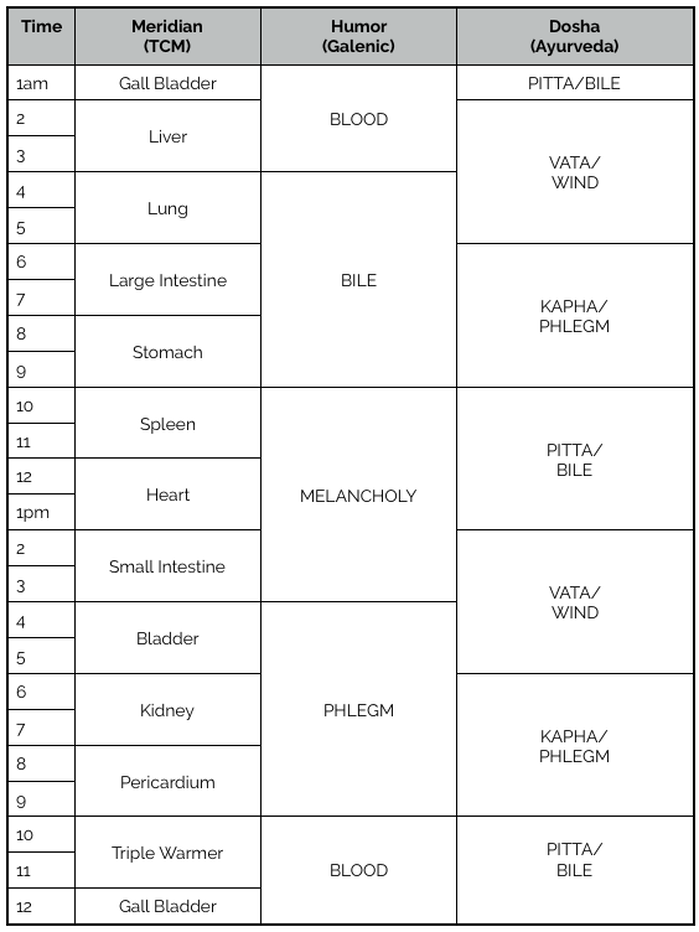Sentry Page Protection
Times of the Day
Each Medical system has associated various times of the Day with certain Systems or Humors of the Body.
The Western, Unani, Ayurvedic and Tibetan Medical systems have associated periods of the day with certain Humors, whereas the Chinese system has associated times of the day with the Meridians (and organs associated with them).
By studying the times associated with the different systems, we can see and learn more about what is happening in the body at the different times of the Day.
There are numerous similar associations to be made by studying the following Table:
The Western, Unani, Ayurvedic and Tibetan Medical systems have associated periods of the day with certain Humors, whereas the Chinese system has associated times of the day with the Meridians (and organs associated with them).
- The Greeks divided the day into 4x6-Hour periods, one period for Each Humor
- The Indians divided the day into 6x4-Hour periods, two periods for each of their Three Dosas (Humors)
- The Chinese divided the day into 12x2-Hour periods, one 2-Hour period for each of the 12 Meridians
By studying the times associated with the different systems, we can see and learn more about what is happening in the body at the different times of the Day.
- For example, note that Bile time of Ayurveda equates with the Gall Bladder Meridian period in TCM, and at the end of the Bile time of Ayurveda, the TCM period moves to Liver, and Bile, once produced, effects the Liver. Also, the Liver time in TCM is under Vata/Wind in Ayurveda, and the Liver is associated with the Air Element, and is strongly associated with Wind diseases.
- Also note the Spleen and Heart time in TCM is the Melancholy period in the Western tradition. Spleen and Heart dysfunction are most associated with the mental effects of excess Melancholy.
- Likewise, Phlegm is most dominant between 6–9pm: Ayurveda and the Western tradition recognise the Phlegm humor as dominant at this time, and in TCM, during this Period the Kidney meridian is most active, the Organ associated with Phlegm in the 4 Humor System.
There are numerous similar associations to be made by studying the following Table:

